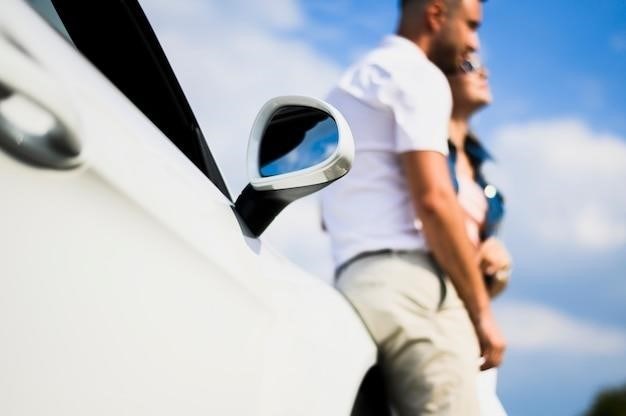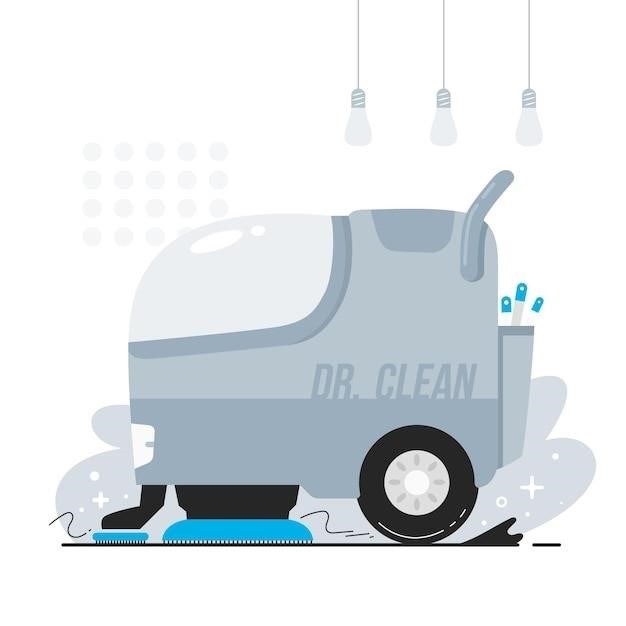Golf R DSG vs Manual⁚ A Comprehensive Comparison
This in-depth comparison analyzes the Volkswagen Golf R’s manual and DSG transmissions, weighing performance, reliability, driving experience, fuel economy, maintenance, modifications, resale value, and personal preferences to help you choose the best fit.
Performance Differences⁚ 0-60 Times and Track Performance
The Golf R’s DSG and manual transmissions offer distinct performance characteristics. While the DSG boasts quicker 0-60 mph times due to its lightning-fast gear changes and consistent power delivery, eliminating power loss between shifts, the manual transmission provides a more engaging and driver-controlled experience. The difference in 0-60 times might be marginal in real-world driving, but on a track, the DSG’s advantage becomes more pronounced. The manual transmission requires more driver skill to achieve optimal performance, maximizing acceleration requires precise clutch work and gear selection. However, the manual’s direct connection to the engine can offer a more rewarding feel for enthusiasts who appreciate a heightened sense of control; Some sources even claim that the manual transmission in the Golf R has a weaker clutch, impacting acceleration and potentially leading to premature wear under high-performance driving. Ultimately, the superior performance choice depends on individual priorities—raw speed versus the visceral engagement of a manual gearbox.
Real-World Driving Experience⁚ City vs. Highway Driving
The driving experience of the Golf R varies significantly between the DSG and manual transmissions, particularly in city and highway driving. In city traffic, the DSG shines. Its smooth, quick shifts make navigating stop-and-go conditions less tiresome. The automatic nature of the DSG eliminates the need for constant clutch engagement and gear changes, reducing driver fatigue. On the highway, both transmissions offer a comfortable and enjoyable driving experience. The DSG maintains its advantage with effortless cruising and seamless acceleration for overtaking. However, the manual transmission offers a more engaging experience for those who enjoy the tactile feedback of shifting gears. While the manual might require more effort in congested city environments, it provides a more connected and rewarding driving experience on open roads, allowing for precise gear selection to optimize acceleration and engine braking. The choice depends on personal preference and driving style; some value the convenience of the DSG, while others prioritize the driver involvement of the manual.
Transmission Reliability⁚ DSG vs. Manual Long-Term Costs
The long-term reliability and associated costs of the Golf R’s DSG and manual transmissions are key factors to consider. While manuals are generally simpler and potentially less prone to major failures, they do require clutch replacements eventually, a cost that can be substantial. The frequency of clutch replacements depends heavily on driving style and modifications. The DSG, being a more complex system, carries the risk of more intricate and expensive repairs. Issues such as mechatronic unit failures or clutch pack wear are documented, and these repairs can significantly impact long-term ownership costs. However, many owners report high reliability with proper maintenance. Regular fluid changes for the DSG are crucial for longevity. Ultimately, the most reliable option depends on individual driving habits and maintenance schedules. While the manual might seem simpler, potential clutch replacements could outweigh the costs associated with potential DSG issues, especially if preventative maintenance is diligently followed. It’s essential to weigh the potential repair costs and frequency against the expected lifespan of each transmission type.
Clutch and Shifter Feel⁚ Subjective Driving Experience
The subjective driving experience offered by the Golf R’s manual and DSG transmissions significantly differs. The manual transmission provides a more direct connection to the car, allowing for precise control over gear changes and engine speed. However, some find the clutch feel in the Golf R’s manual to be somewhat vague or lacking in feedback, particularly compared to other performance cars. This can make smooth, controlled shifts challenging, especially for less experienced drivers or in demanding driving situations; The shifter itself is generally praised for its positive throws, although some might find the throws slightly too long. In contrast, the DSG offers instantaneous shifts with no interruption of power delivery. This provides a remarkably smooth and efficient driving experience, especially in city driving or stop-and-go traffic. However, some drivers miss the engagement and control afforded by a manual gearbox. The paddle shifters offer a degree of manual control, but it can’t fully replicate the feeling of a traditional manual transmission. Ultimately, the “better” feel is a matter of personal preference, with enthusiasts favoring the engagement of a manual and others valuing the seamless performance and convenience of the DSG.

Fuel Efficiency⁚ MPG Comparison Between DSG and Manual

The fuel efficiency of the Volkswagen Golf R, when comparing the manual and DSG transmissions, often shows a slight advantage for the DSG. While real-world results can vary based on driving style, road conditions, and other factors, the DSG’s ability to make seamless and quick shifts generally leads to better fuel economy. The constant power delivery of the DSG minimizes the fuel consumption associated with shifting gears manually. In contrast, the manual transmission, while providing a more engaging driving experience, might result in slightly lower MPG, particularly in city driving where frequent shifting is necessary. However, a skilled driver adept at smooth shifting in a manual can potentially mitigate this difference. The difference in fuel economy between the two transmissions is typically not drastic, and the overall fuel efficiency of both versions remains relatively comparable. Ultimately, while the DSG may offer a marginal edge in fuel economy, the difference is likely to be insignificant for most drivers when compared to other factors influencing fuel consumption, such as driving habits and terrain. The choice between manual and DSG should therefore primarily be based on personal preference regarding driving experience.
Maintenance and Repair Costs⁚ Comparing Long-Term Expenses
The long-term maintenance and repair costs for a Volkswagen Golf R with a manual versus a DSG transmission present a nuanced comparison. While the manual transmission generally requires less frequent and less expensive maintenance, the potential for clutch replacement represents a significant potential cost. The clutch’s lifespan depends heavily on the driver’s style; aggressive driving will shorten it, while gentle operation can extend it. Conversely, the DSG transmission, being more complex, necessitates specialized maintenance and repairs. This includes potential issues with the dual-clutch system itself, mechatronics unit failures, and more frequent fluid changes. While the initial cost of DSG maintenance might seem higher, the overall long-term cost can vary widely depending on the reliability of both transmissions and the driver’s behavior. Some owners report needing significant DSG repairs, while others experience relatively trouble-free operation. In contrast, manual transmissions’ maintenance remains relatively predictable, primarily involving clutch replacement at some point during the car’s lifespan. Therefore, accurately comparing long-term costs requires careful consideration of potential major repairs and the variability involved in both transmission types. The potential for catastrophic failure necessitates careful consideration before deciding between the two.
Modifications and Tuning⁚ Impact on Transmission Choice
Modifying a Volkswagen Golf R significantly impacts the transmission choice. For those planning extensive performance modifications, the DSG transmission often proves more resilient to increased power and torque outputs. Its ability to handle higher stress levels makes it a popular choice among tuners. However, pushing the DSG to its limits can increase wear and tear, potentially leading to premature component failures if not carefully managed. Conversely, modifying a manual transmission can present different challenges. Increased torque can quickly overwhelm a stock clutch, necessitating an upgrade to a stronger, more robust unit. Furthermore, the added stress on the gearbox itself might necessitate internal upgrades or replacements to withstand the increased power. The choice between manual and DSG for modifications ultimately depends on the extent of the modifications and the driver’s tolerance for increased maintenance and potential repair costs. While a well-maintained manual transmission with appropriate upgrades can handle significant power increases, the inherent robustness and faster shift times of the DSG make it a compelling choice for extreme performance modifications, provided that regular maintenance is diligently performed.
Resale Value⁚ Impact of Transmission Type on Used Car Prices
The transmission type in a used Volkswagen Golf R can significantly influence its resale value. Generally, the DSG automatic transmission commands a slightly higher resale price compared to the manual transmission. This is primarily attributed to the DSG’s perceived convenience and performance advantages. Many buyers prioritize the faster shifting and smoother driving experience offered by the DSG, leading to a higher demand and, consequently, a better resale value. The manual transmission, while appreciated by driving enthusiasts, holds a slightly smaller market share. This reduced demand can result in a marginally lower resale price compared to equivalent DSG-equipped models. However, the difference in resale value isn’t always substantial and can vary based on other factors such as overall condition, mileage, modifications, and market trends. A well-maintained manual transmission Golf R in excellent condition can still retain strong resale value, especially among buyers who specifically seek the engaging driving experience that a manual gearbox provides. Ultimately, while the DSG may offer a slight edge in resale, both transmission types can retain strong value within the used car market, contingent on factors beyond just the transmission choice itself.
Driver Preference⁚ Personal Factors in Choosing a Transmission
The choice between a Golf R with a DSG or manual transmission often boils down to individual driver preferences. Driving style significantly influences this decision. Enthusiasts who enjoy the tactile engagement of a manual gearbox, the precise control over gear selection, and the active participation in the driving process often prefer the manual transmission. The manual offers a more direct connection to the car, rewarding skilled drivers with a more rewarding driving experience. Conversely, drivers who prioritize convenience, ease of use, and effortless driving in various traffic conditions may find the DSG more appealing. The DSG’s quick shifts and automated operation eliminate the need for clutch engagement and gear changes, making it a more relaxed option for daily commutes or stop-and-go traffic. Furthermore, individual physical capabilities play a role. Drivers with physical limitations or those who find clutch operation challenging might find the DSG more suitable. Ultimately, the “best” transmission is subjective and depends on individual priorities and the type of driving experience each driver seeks. Consider your daily driving habits, personal preferences, and physical capabilities when making your decision.
Technology and Features⁚ DSG’s Advantages in Modern Vehicles
The DSG transmission in the Golf R showcases Volkswagen’s advanced automotive technology, offering several advantages over the manual option. Beyond its speed and efficiency in shifting gears, the DSG system integrates seamlessly with other vehicle systems. This integration enhances the overall driving experience and provides features not available with a manual transmission. For example, launch control, a feature that optimizes acceleration from a standstill, is typically only available with DSG. This system manages engine speed, clutch engagement, and throttle input for maximum acceleration, providing a significant performance advantage. Furthermore, the DSG often includes adaptive shifting algorithms that adjust gear changes based on driving style and road conditions. This results in smoother, more efficient shifting tailored to the driver’s needs. Additionally, some DSG systems offer a manual mode, allowing drivers to take control of gear selection using paddle shifters behind the steering wheel. This combines the convenience of an automatic transmission with the control of a manual, offering the best of both worlds. The integration of these technological features elevates the driving experience and showcases the sophistication of the DSG system.
Overall Verdict⁚ Which Transmission is Right for You?
The choice between the Golf R’s DSG and manual transmission ultimately boils down to individual preferences and driving priorities. The DSG offers superior performance, quicker acceleration, and enhanced fuel efficiency due to its consistent power delivery and optimized gear changes. Its technological features, such as launch control and adaptive shifting, provide a more advanced driving experience. However, the manual transmission provides a more engaging and driver-centric experience, offering greater control and a more direct connection to the car. The feel of shifting gears and the use of a clutch pedal are valued by many enthusiasts. Consider your typical driving conditions; the DSG excels in stop-and-go traffic, while the manual might be more rewarding on winding roads. Factor in long-term reliability and maintenance costs; the DSG, while generally reliable, can be expensive to repair if issues arise; The manual transmission’s maintenance is simpler and generally less costly. Ultimately, the “best” transmission depends on your personal priorities – prioritize performance and convenience, choose DSG; prioritize engagement and a more traditional driving feel, choose the manual.


